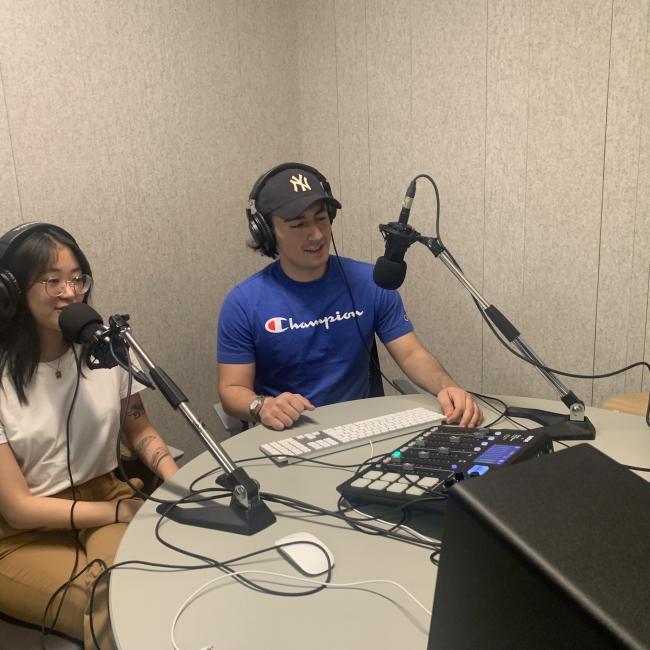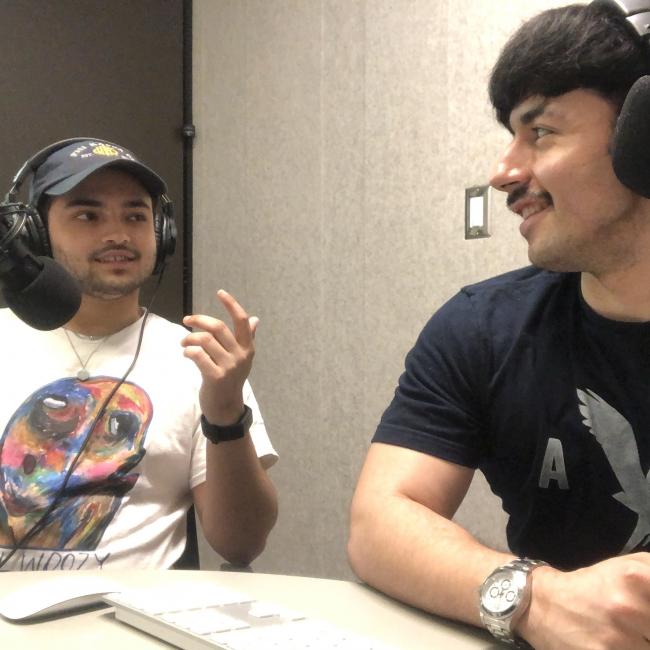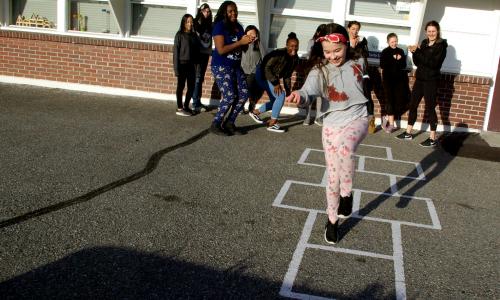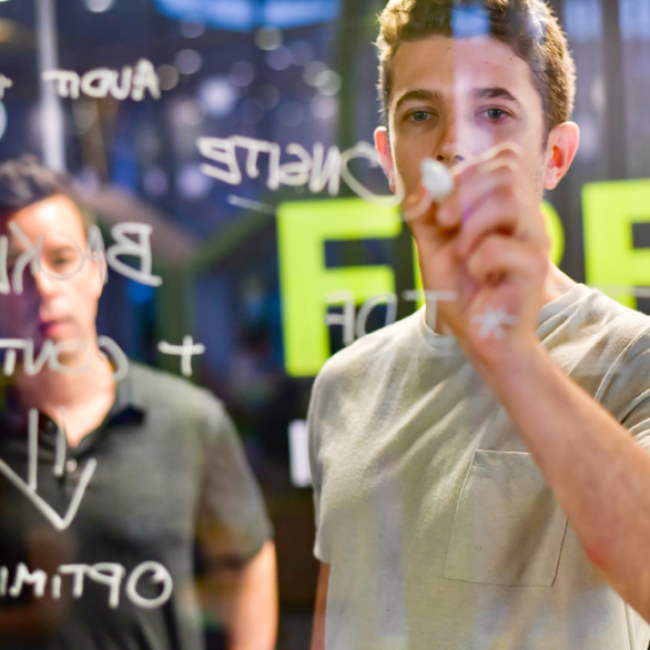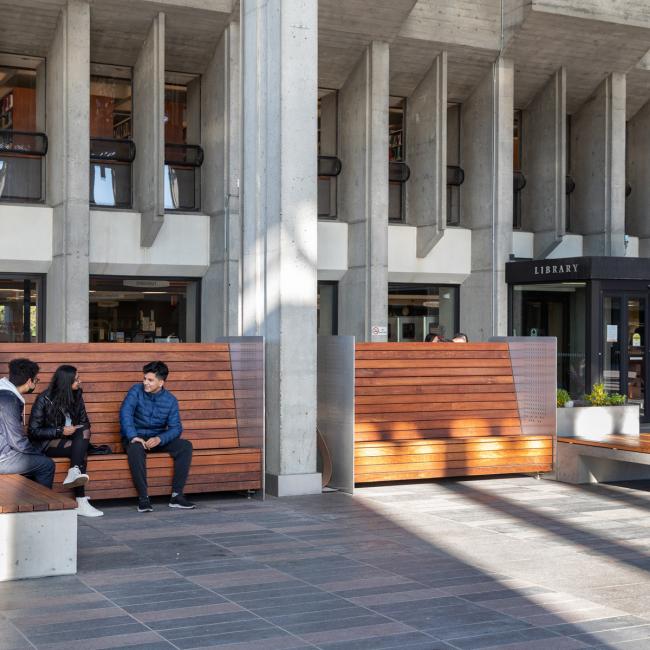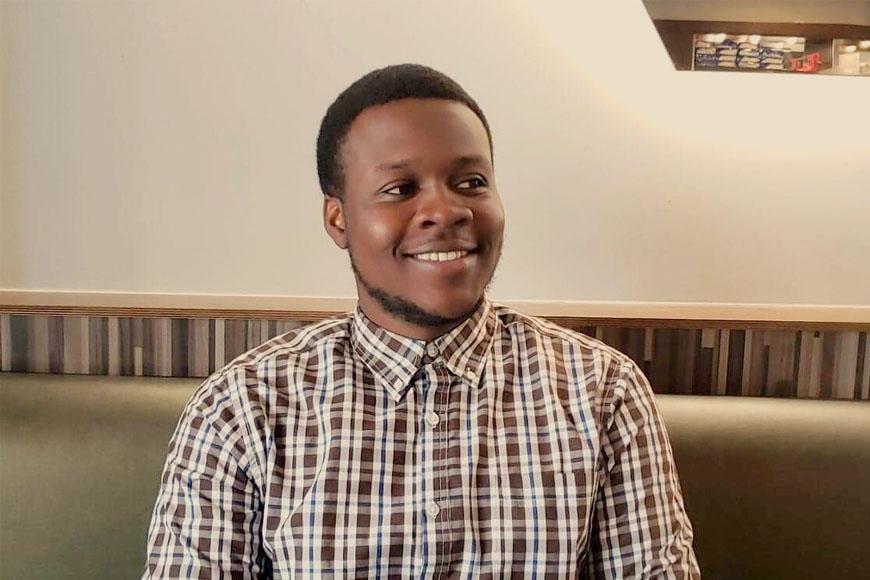
In university courses, it isn’t often that the theoretical knowledge you read about can be made into a project that impacts the community. Nor are you able to ask for career advice from professionals that work in the field you are interested in. Your papers often go unpublished, only to be read by your professor and you sometimes end the course without having truly gotten to know your classmates due to large lecture sizes. This was not David Oyetola’s experience when he partook in the Semester in Dialogue’s Semester in Wicked Problems in Spring of 2021.
David is an undergraduate student at SFU who balances studying psychology with working as a mental health worker in Vancouver’s Downtown Eastside. For the past two years, he has acted as a first responder in emergency situations to coordinate harm reduction for those who can’t otherwise access resources such as safe housing. In his free time, he works with international students to assist with admissions and settlement. His work within the community comes from a deep desire to help people. This desire is what led him to study psychology and to sign up for the Semester in Dialogue program, which is dedicated to community engagement.
He was excited when he signed up but initially wasn’t sure what exactly to expect. It was a new environment and the classes were being provided online, but within the first few days, David was meeting classmates who came from all different faculties and life experiences to discuss what wicked problems keep them up at night. Through deep dialogue with his classmates, he came to learn how the problems he faces affect people coming from varying cultures and contexts in different ways.
All the classmates came together in group projects to tackle a wicked problem that was facing their community. David and his group worked on a pamphlet for domestic violence support services in the community. The pamphlet was aimed to be a space where the general population can access resources and was distributed online. David notes that the pamphlet was created after talking to professionals in the community who work with people who experience domestic abuse. The professionals they spoke to highlighted that resources like this are a gap in the field of work being done to help domestic abuse survivors.
David said that he was once skeptical about group projects, but in the Semester in Dialogue, he developed the skills to organize meetings and balance different members’ preferences. This allowed him to hone the skills of both research and planning. He had to coordinate different time zones and look at how to highlight members’ individual skills and working styles. Through this, David made friends with classmates who were studying from home in Ghana. These friendships, built on the basis of discussing the deep topic of wicked problems, have continued even after the class has ended.
The depth of content matter meant that class members were able to learn about a variety of different subjects under the topic of wicked problems. They were able to explore polarized politics, mental health, reconciliation, educational reform and so much more. They also got to speak with professionals in different fields of work and gain relationships with these guest lecturers.
“Through the Semester in Dialogue I learned what it means to be impactful in the field I am interested in,” says David.
Beyond the Blog
-
Applications are currently open for the Semester in Dialogue Summer 2022, Semester in Trust, Money and Power. Apply here: https://www.sfu.ca/dialogue/semester/how-do-i-apply.html
-
Follow the semester in dialogue on Instagram to see what the current cohort is up to: https://www.instagram.com/sfusemester/











